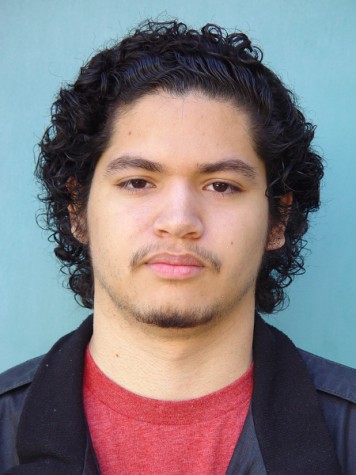The board of trustees covered subjects ranging from the college cafeteria to talks about the advisory hiring committee for college president during its Feb. 22 meeting in Kreider Hall.
Ricardo Perez, vice president of student services, said that there are currently seven candidates in the running for the president’s position, which is now held on an interim basis by Dawn Lindsay.
An open candidate forum will be held today from 1 to 4:30 p.m. in the auditorium.
Also at the meeting, the Glendale College Foundation showcased its plans for raising money for the campus.
Harry Hull, president of the foundation, talked about raising money through the annual appeal.
“[The annual appeal] involves writing a letter to a whole bunch of folks asking them to reinvest in the college. and that [has] generated over $10,000 to date for us,” Hull said.
The other idea, called the President’s Circle, asks donors to make an investment of $1,000 or more. This will in turn make them a part of the exclusive circle. Hull admitted that during this tough existing economy, it might be difficult to garner new members.
However, Hull said, “We have 16 members at the moment, so we have [$16,000] of unrestricted money.”
The other special presentation focused on the cafeteria’s ability to sustain itself financially.
“If you look historically at the cafeteria, we’ve been running a deficit since 1991-92,” said Ron Nakasone, interim executive vice president of administrative services. “That was the last year the cafeteria was self-sufficient.”
Nakasone added that almost every college with a cafeteria faces similar operating deficits. He said that it is unlikely that the cafeteria could become self-sufficient because, unlike fast-food chains that rely on part-timers paid minimum wages, the college cafeteria has 10 full-time employees and a manager.
In addition, Nakasone stated that the cafeteria workers are paid $15 to $16 an hour with full retirement and medical benefits, so it is very difficult to reduce costs.
As a result, the college needs to subsidize the cafeteria’s operations.
Another reason that was pointed out as to why the cafeteria is running at a deficit is because of the increased competition. The restaurants across the bridge in front of the college have been a magnet to students because of the variety of food and low prices available at Quiznos and The Flame Broiler.
A new layout for remodeling has been considered for the cafeteria to quicken the pace of the lines to get students in, out and on the go, which should attract students who have tight schedules.
Nakasone said that menu and portion sizes have been adjusted to try to bring in more customers. In addition, the cafeteria has been serving different styles of food such as Asian and Middle Eastern.
Debit and credit cards have been introduced in the cafeteria to keep up with the times. Also, product inventory has been reduced and better deals have been struck with vendors to keep costs down.
Nancy Jordan, manager of food services and a culinary arts instructor, brought up a concern of her own.
“One of the biggest challenges I have is the signage for the cafeteria,” Jordan said. “On a daily basis I talk to my classes and a lot of the students don’t even realize that we’ve got an upstairs grill or a downstairs food court because there’s absolutely no signage.”
A partnership between the culinary arts and the cafeteria is being planned, which may lead to remodeling the kitchen area to accommodate the new culinary students.
As a last resort, eliminating all available food on campus and sticking with only vending machines is a possibility. There are no state regulations that specify that a community college must serve food.
Nevertheless, trustee member Armine Hacopian reassured that “[the trustees] are committed to providing food for [the students]; whether it’s outsourced, in-sourced. we do want you to have food on campus.”
In addition to the cafeteria, board financial reports and schedule updates were discussed. Of the 12 items on the consent calendar, one of them was met with strong opposition from Lilya Avagyan, student trustee and president of the associated students governing body.
The non-resident tuition and capital outlay fees for the 2010-11 year displeased Avagyan because students have to pay an extra $5 on top of the $181 per unit fee that they already pay.
The next board of trustees meeting will be held in Kreider Hall on March 15 at 5 p.m.

